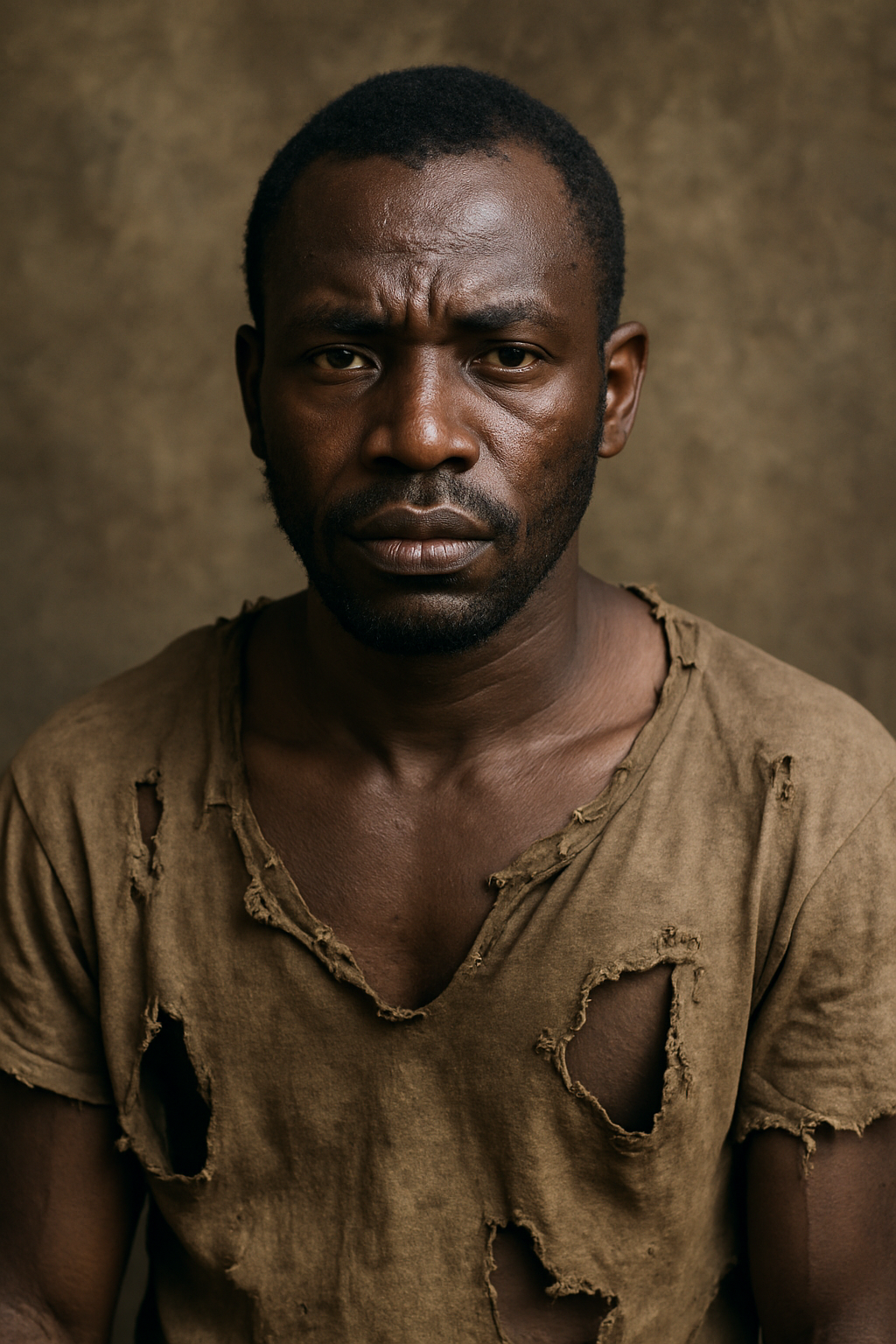Poverty is not always about lack of money. Many times, it’s the mindset, the repeated cycles of disbelief, mislabeling, and internalized helplessness that keep people stuck. This article explores how the way society perceives individuals, and the way individuals perceive themselves, plays a larger role in perpetuating poverty than we admit.
The Poverty of Perception
The man in the image represents many people trapped in difficult circumstances—not because they are lazy or unworthy—but because society has already written them off. His torn spirit mirrors the lives of countless individuals who are dismissed because of how they look, sound, or where they come from.
In Nigeria and many parts of the world, poverty often wears a familiar face. A child from a broken home. A man from a low-income community. A woman without formal education. These people aren’t just poor financially—they are poor in societal belief. Society doesn’t expect much from them, so even when they try to rise, their efforts are overlooked, their truths ignored.
This is how perceptual poverty works. The world forms an opinion, and that opinion becomes your ceiling.
The Danger of a Fixed Mindset
Stanford psychologist Carol Dweck popularized the terms fixed mindset and growth mindset. A fixed mindset believes abilities and outcomes are static—“I was born poor, I’ll stay poor.” A growth mindset believes change is possible—“I may not have much now, but I can improve.”
What happens when you live in a society where the dominant mindset is fixed?
You stop trying. You believe struggle is noble. You associate wealth with greed and compromise. You accept a low-paying job because “at least it’s something.” You feel guilty for dreaming too big. This psychological trap is more powerful than physical poverty. Because even if opportunity knocks, you won’t open the door—you’ll say, “It’s not for me.”
The man being abused but not believed is trapped in that exact web. Not just by society’s judgments, but by the echo chamber in his own head. “Nobody will believe me.” “I must have done something to deserve this.” “Let me endure.” That is poverty of the mind—a condition far more stubborn than financial lack.
How Society Protects the Familiar Villains
Poverty is often prolonged because society rewards what is familiar, not necessarily what is right. Just like the image shows people believing the abuser because her voice is louder or more emotional, society often favors familiar systems, even if they are exploitative.
A corrupt leader who doles out small change every election season is trusted over a quiet reformer. An employer who pays peanuts but offers “experience” is preferred over the freelancer trying to charge his worth. Parents push children toward “safe” careers, killing creative ambition early.
In each of these cases, the villain is disguised as a savior, and the person trying to escape is accused of being “too proud,” “too ambitious,” or “ungrateful.”
This happens every day to the poor. When they start thinking differently—daring to charge more, seek therapy, or study something new—people around them say, “Who do you think you are?” That question is a trap. It reinforces a limited mindset, keeping poverty alive across generations.
What Keeps the Cycle Going?
Let’s name the silent enemies of liberation:
- Guilt: The belief that if you rise, you’re abandoning your people.
- Shame: The fear of failing publicly.
- Dependency: Being too used to help that you forget how to help yourself.
- Fear of Rejection: Like the man in the image, many fear that speaking their truth will make things worse. And often, it does. At first.
- Disempowering Culture: “Suffer for this life, enjoy in heaven” is a saying that sounds holy but keeps people passive.
Shifting the Mindset
Real change starts from within. But not the motivational, cliché type of “think positive.” Real mindset shift means:
- Accepting reality without glorifying struggle – Being poor is not noble. Endurance is not a life strategy.
- Learning new skills aggressively – The poor are often too busy trying to survive. But the moment you prioritize learning, you start owning your power.
- Choosing courage over comfort – Speaking your truth may get you mocked or ignored at first. But silence is a heavier burden.
- Redefining identity – Instead of calling yourself “a struggling man,” say “a creative man in transition.” Language shapes perception. Perception shapes outcome.
- Being willing to lose false support – When you change your mindset, some people will leave. Let them.
The Role of the Community
While individual mindset matters, we must also talk about collective responsibility. It’s easy to tell people to think big—but if their community keeps reinforcing smallness, they won’t grow.
Communities must:
- Stop mocking ambition.
- Celebrate effort, not just success.
- Believe victims, even when their stories are not dramatic.
- Offer opportunities without shame.
If you see someone trying to rise from poverty, don’t say, “Na you go first start.” Say, “How can I help?”
Conclusion: Freeing the Mind Before the Pocket
The man in the image is symbolic of millions who suffer quietly—abused by systems, relationships, or inner voices. Yet they are not believed, because their story doesn’t fit the script society prefers.
To break poverty, we must break the mental agreements we’ve made with fear, shame, and struggle. We must teach people to believe in themselves—even when no one else does. Because poverty is not just a matter of income. It is a matter of identity, of courage, of perception.
And it starts in the mind.








